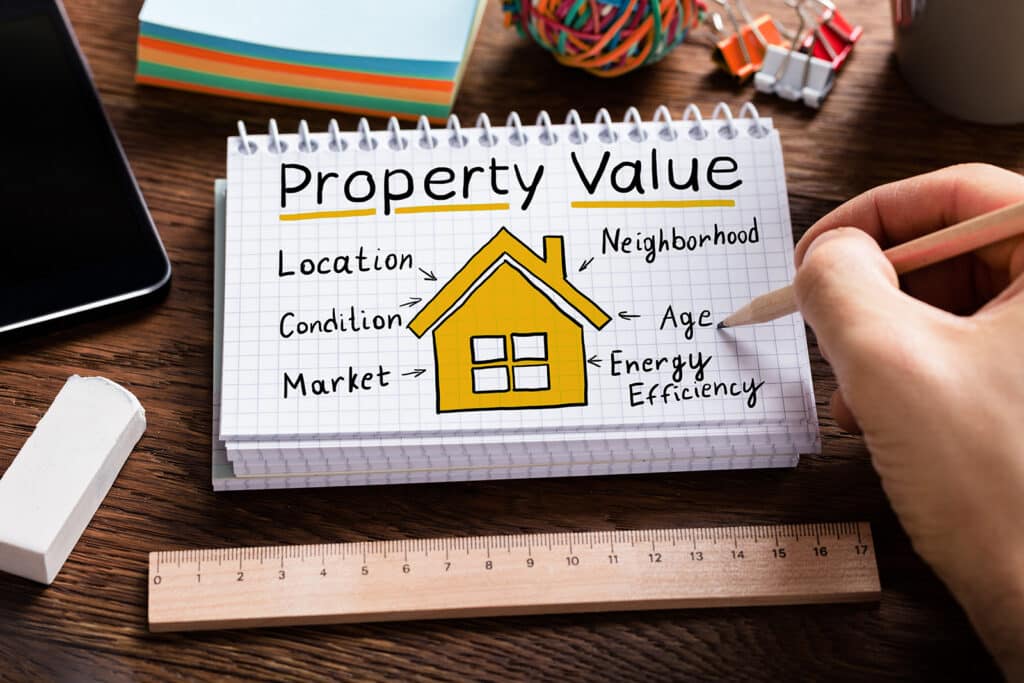In Alberta, the simplified purchase process is as follows:
(1) The buyer makes an offer.
(2) The seller accepts the offer and signs the contract.
(3) The escrow amount clears.
(4) The parties exchange all necessary documents. However, complications may delay closing for days, weeks, or even months.
To avoid delays in closing when buying or selling a home in Alberta, here is what to do.
Quick take: How to close real estate deals in Edmonton
- Create a checklist of obligations you must fulfil before closing day.
- Fulfill your obligations before the closing date.
- Understand the terms of the lender before signing mortgage papers.
- Use an escrow account.
- Prepare for the closing expenses listed below.
Home sellers: What to expect at closing in Edmonton
Real estate closing or transfer of ownership of a property entails fulfilling the terms and conditions of a contract, transferring all paperwork, and the seller receiving funds typically held in an escrow account. Some buyers may also choose to pay cash.
What is vital to remember is that failure to fulfill the obligations set out in a contract may be grounds for either party to withdraw from the sale. Factors that may delay, prevent, or hinder closing in Alberta include:

- Failure to make repairs. Before signing a contract, you must understand your obligations. For example, the contract may require either party to fund and make repairs. If it is your obligation, failure to make repairs before closing may lead to delays, the sale may fall through, and there is the possibility of legal action. Therefore, check the “sellers closing obligations” clause and ensure that you have fulfilled what is legally required of you before closing day.
- Home inspection and appraisal reports. Either report has the potential to come out positive or negative. Unlike the buyer, once you sign a real estate contract, you do not have as many ways to back out. Consequently, during the contract signing, ensure that you include contingencies in the contract should either report come out negative. In other words, do not trap yourself in a contract. We recommend ensuring that the contract specifies what happens to the deposit, who pays for repairs and a dispute resolution process. A dispute resolution clause lessens the need for either party to go to court.
- Are there “clouds” on the title. If you are selling jointly owned property, ensure that the co-owner is aware of the sale and that your name is on the deed. Other factors to consider are dower rights, divorce, and liens on the property.
Do you have insurance?

One way to protect yourself from liability when selling a home is to buy insurance.
What type of insurance do you need when selling a home in Edmonton?
- Dwelling and content coverage. During the sale, your home and property are at risk of damage, considering the number of people coming and going. There is also the issue of theft and vandalism. If you move out and want to keep your belongings or rented staging furniture safe. It is not necessary, but it is advisable.
- Liability coverage. What if a buyer slips and falls while on your property? Or what if your dog attacks a buyer? Or someone gets injured while on your property? If you do not have insurance and that injured person takes legal action, you may have to pay damages out of pocket. Liability coverage is necessary, especially if the home has potentially dangerous defects.
- Title insurance. You may need this type of insurance if there are issues with the title. The coverage protects the owner and lender from losses sustained from defects in the title.
Tip: You can avoid seller pains by selling with Sweetly. Receive appraised value less our fee.
Remember, you own the property until closing. Consequently, you are liable for injuries or property damage that may occur on the property.
Sellers: How to ensure a smooth closing

According to experienced REALTORS®, you may ensure a smooth closing by doing the following:
- Collaborate with an experienced REALTOR®. If it is your first time selling a home in Edmonton, you will have doubts, and you may make costly mistakes. REALTORS® have the experience, and they can help you sell a home with little to no hassle.
- Locate or replace all the necessary documents. If you have lost essential paperwork, start by replacing them here. You should also clear with the zoning office and get written consent to sell from all parties with a legal interest in the property (spouse, co-owner, former spouse). Real estate agents can help explain all the documents you need.
- Past upgrades. If you have made improvements to the home and you intend to sell it, keep the receipts. The receipts could be useful during appraisal, and the upgrades may make the home worth more than comparable properties.
- Be clear about the timeline. You may need the money from the sale to finance a new home or for other urgent reasons. Consequently, it is in your best interest for the buyer to be clear about the timeline. That entails creating and maintaining an open line of communication.
If you have sorted all the issues above, closing day should go smoothly.
If any delays or disputes arise during the closing, we recommend following the steps set in your dispute clause instead of going to court.
What to remember:
- You must complete all obligations set in the contract before closing.
- Failure to fulfill contractual obligations may mean a delay, the buyer may pull out, or you may get sued.
- To secure the closing process, you will hire a settlement agent/escrowee. The work of a Settlement Agent is to hold all the documents and money – and to ensure both parties get what is owed to them.
- Closing documents may be signed at the escrowee’s office, online, at the property, at the REALTOR® or attorney’s office. It is up to the parties to decide.
- Sellers may pre-sign documents if they do not want to attend the closing.
What happens before and after closing on a home in Edmonton
Once the documents are signed and the funds exchanged, you no longer own the home. That means you must move your property and fulfill all that is required of you.
If you intend to stay in the home post-sale for a specified period, you should negotiate the arrangement post-closing.
What is included in closing costs for home sellers in Edmonton
When selling a home in Alberta, prepare for the following costs :
- Legal expenses. Local laws require paperwork to be created by lawyers. Lawyer fees vary, but on average, legal fees should cost anywhere from $400 to $1000 or more. You may get a discount by working with a REALTOR®.
- Property insurance. You need insurance to shield you from liability, and you may need it to replace the home should the unfortunate happen. We recommend getting quotes from multiple insurers and deciding what fits your budget. Home insurance is not necessary when selling a home in Alberta but is advisable.
- Utility service fees. In the interest of staging/marketing, you may have to continue paying utility fees. The longer the home is on the market, the more you will pay.
- Recurring costs. Insurance, property taxes, and other regular expenses may accumulate if you ignore them.
- Potentially carrying two mortgages if you are selling your current home.
Tip: Avoid hidden fees by taking advantage of our Swift Sale program.
Other expenses the property owner or seller could be responsible for include:
- Home inspection fees.
- Property survey.
- Appraisal. (You can easily book an appraisal with Sweetly to find the value of your home or take advantage of our home value calculator to get an approximate purchase price)
Home buyers: What to expect at closing in Edmonton
When buying a home in Alberta, you will need a real estate attorney to help draft all legal documents and a REALTOR® to help you find a suitable home or property (A real estate agent may help you find a reputable real estate lawyer). Just like the seller, there are several steps you must take to ensure a smooth closing.
Employ the services of a real estate attorney
When buying a home in Alberta or anywhere else, there is the risk of losing your money on a property that does not suit your needs or losing your down payment for mistakes made during the contract signing. The reasons you should work with an attorney are:
- To verify the title and other documents.
- Submit the documents for land registration to the proper authorities.
- Draft and set conditions in the contract in compliance with local laws.
- To submit post-sale reports and inform you of any legal landmines during the sale process.
- Set contingencies in the contract.
- Help resolve legal disputes that may arise during the sale.
That means you need an experienced and trustworthy real estate attorney. Your REALTOR® may provide you with one that they work with.
What should a buyer do in preparation for closing?
The contract should specify a closing day. If any delays occur on your end or the seller’s, it is in the interest of both parties to be aware of the cause and solutions. That means informing the other party before closing day.
Some factors that may delay closing for the buyer include:
- A low home appraisal. Your lender is unlikely to pay for an overpriced property. That is why some require a home appraisal as a condition for funding. If you get a low home appraisal report, you must decide whether you will renegotiate or back out of the sale. During the contract signing, you should include a home appraisal contingency. That way, if the deal falls through, you get to keep your deposit and avoid litigation. Get an appraisal from a licensed appraiser with Sweetly.
- Failed home inspection. A home inspection may uncover issues that need to be resolved before moving in.
- Do you have a closing disclosure? Before you get a loan from your lender, you should be aware of how much in fees and other costs you will pay, your projected monthly payments, and the terms of the loan. You will find all that information in a closing disclosure. Do not sign mortgage papers before you understand its terms. If you need help understanding the document, contact a lawyer, real estate agent, or your lender.
- You will need an escrow account. An escrow account is an account held by a third party on behalf of the seller and buyer. It is useful in preventing fraud. Escrow may delay the closing if:
(1) There is an issue with the title.
(2) Appraisal issues.
(3) Unfinished repairs.
(4) If the lender needs more documents. - Lis pendens/legal issues. Does the seller own the property? Is there a claim on the property? And other legal issues may prevent closing. To avoid this, conduct a title search to verify ownership.
Buyers: How to ensure a smooth sale
- Secure financing. The best option is to pay cash, but that is out of reach for the majority of homebuyers. The next best thing is to use Sweetly to purchase your home on the day you choose. This allows you to become a power buyer and purchase your next home without relying on a conditional sale. The traditional method is to get a loan secured before closing and to ensure that you are comfortable with the terms of the mortgage.
- Get a home appraisal and include contingencies in the contract. You may need a way “out” of a contract before closing, and your lender will require a home appraisal. Make sure that the reports are on time and that you hire experienced professionals to avoid the need for a second or third opinion.
Conduct a title search.
A title search is beneficial in that it tells if the seller owns the property. If you do not verify ownership, legal issues may extend post-sale.
What to do after closing on a house in Edmonton
After buying a home in Alberta, it is in your best interest to do the following.
- Make copies of all documents and secure the originals. Should an issue occur, you will need the documents to prove the transfer and ownership of the property.
- Conduct maintenance and repairs. The home may need minor repairs or upgrades.
- Change the lock and keys. The previous owners or someone else may have spare keys.
- Lock your interest rates. You may also renegotiate monthly payments with your lender.












